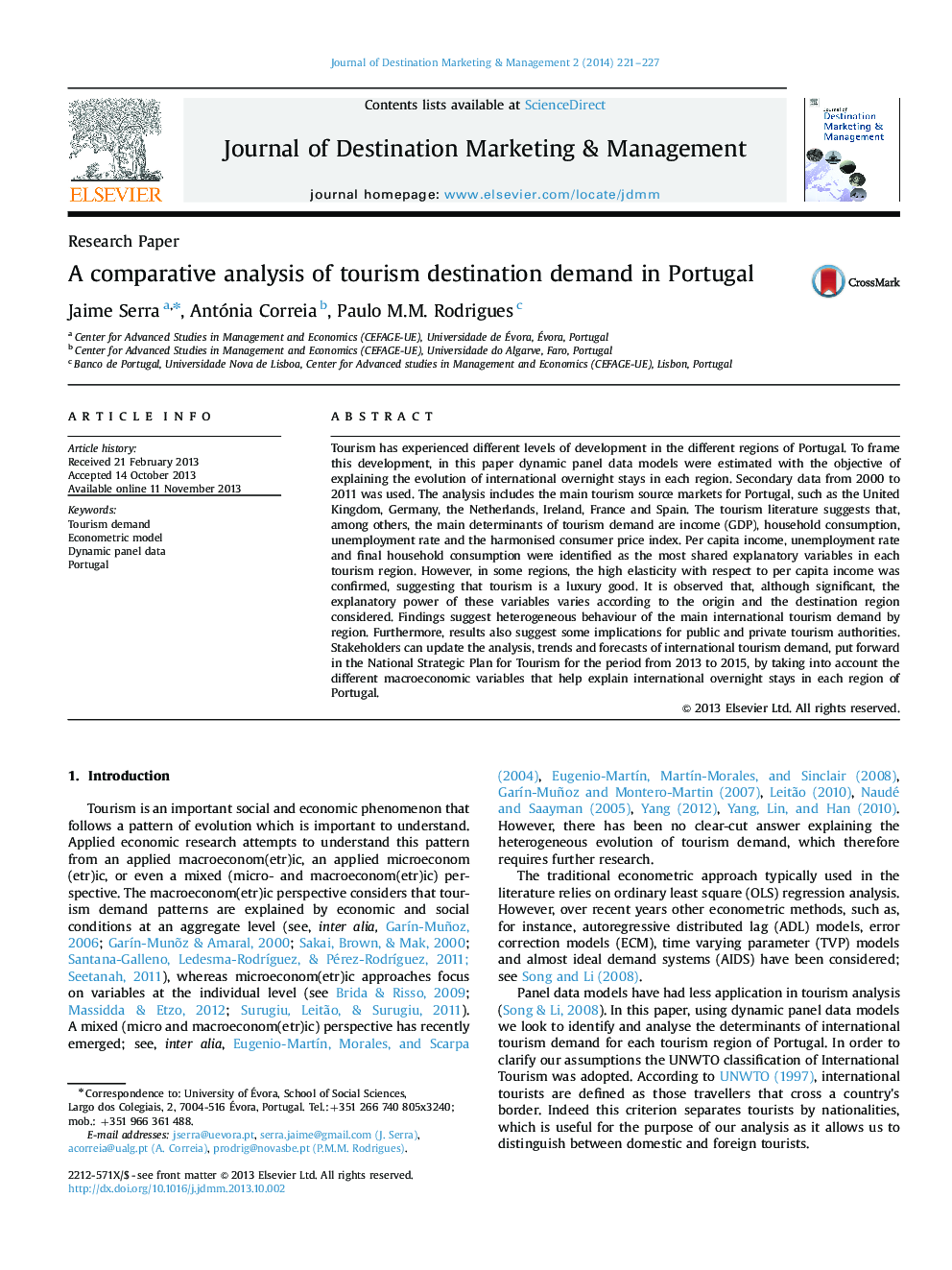| Article ID | Journal | Published Year | Pages | File Type |
|---|---|---|---|---|
| 1011151 | Journal of Destination Marketing & Management | 2014 | 7 Pages |
Tourism has experienced different levels of development in the different regions of Portugal. To frame this development, in this paper dynamic panel data models were estimated with the objective of explaining the evolution of international overnight stays in each region. Secondary data from 2000 to 2011 was used. The analysis includes the main tourism source markets for Portugal, such as the United Kingdom, Germany, the Netherlands, Ireland, France and Spain. The tourism literature suggests that, among others, the main determinants of tourism demand are income (GDP), household consumption, unemployment rate and the harmonised consumer price index. Per capita income, unemployment rate and final household consumption were identified as the most shared explanatory variables in each tourism region. However, in some regions, the high elasticity with respect to per capita income was confirmed, suggesting that tourism is a luxury good. It is observed that, although significant, the explanatory power of these variables varies according to the origin and the destination region considered. Findings suggest heterogeneous behaviour of the main international tourism demand by region. Furthermore, results also suggest some implications for public and private tourism authorities. Stakeholders can update the analysis, trends and forecasts of international tourism demand, put forward in the National Strategic Plan for Tourism for the period from 2013 to 2015, by taking into account the different macroeconomic variables that help explain international overnight stays in each region of Portugal.
